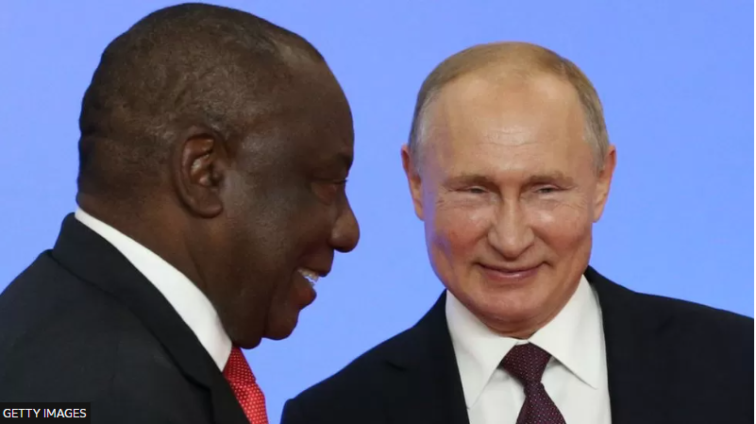Bridges are important for more than just connecting communities. Bridges are required for the formation and maintenance of strategic relationships to capture common interests and benefits. This is one of the primary reasons why a group of people, organisations, and governments have distinct strategies for establishing and maintaining relationships.
Countries from the Global North to the Global South are announcing the aims of partnerships and the measures to achieve them in their foreign policy declarations. When the occasion calls for it, presidents may also make spoken statements.
All of this is known to Moscow. That is why, for decades, it has articulated its foreign interactions and collaborations with relevant governments and enterprises per global best practices. As one of the sovereign centres of global development, it has played a unique historical role in shaping the modern system of international relations and eradicating the global system of colonialism.
Its mission is to maintain the global balance of power and establish a multipolar international system. Therefore, Russia is guided by the principles of sovereign equality and respect for each other's interests towards maintaining strategic stability and strengthening international peace and security.
The Russian Federation's strategic foreign policy aims to create an equitable and sustainable world order, maintain international peace and security, and promote peaceful coexistence and progressive development. It assists in developing comprehensive responses to common challenges and threats, promotes mutually beneficial cooperation with foreign states and their associations, counters anti-Russian activities, establishes good neighbourly relations with contiguous states, assists Russian allies and partners in promoting shared interests, and strengthens the capacity of multilateral regional associations and integration structures.
The Russian Federation also aims to consolidate its position in the world economy, ensure national development goals, and protect its interests in the world's oceans, space, and airspace. It also aims to enhance Russia's role in the global humanitarian space, preserve historical truth, and protect the rights, freedoms, and legitimate interests of Russian citizens and entities abroad. It also develops ties with its compatriots living abroad, ensuring their rights and cultural identity are protected. To fortify the underpinnings of the global financial system, Russia is also taking the lead in and starting regional financial projects.
Our analyst further examined the recently released Concept of the Foreign Policy of the Russian Federation intending to reveal the number of goals and means the country has for continents across the world as well as implications for building sustainable foreign relations. The policy document clearly states the establishment of an equitable and sustainable world order, the rule of law in international relations, and strengthening international peace and security as the key priorities of the Russian Federation.
In terms of goals, analysis reveals that the Russian Federation pursues more substantial international relations with nations in Eurasia, Europe, the United States, and other Anglo-Saxon states than with countries in Near Abroad, the Arctic, Asia-Pacific, Africa, Latin America and the Caribbean, and Antarctica. Our analyst points out that this does not imply that the Russian Federation does not seek to maintain relations with governments on these continents. According to our analyst, it just indicates the level of prioritizing present while developing goals.
Meanwhile, analysis suggests that the shortfall in goal setting seems to be complemented by the number of means allocated to some of the continents: Near Abroad, the Arctic, Asia-Pacific, Africa, Latin America and the Caribbean and Antarctica. For example, analysis reveals that Near Abroad, which comprises countries in the Commonwealth of Independent States, that is, Armenia, Azerbaijan, Belarus, Kazakhstan, Kyrgyzstan, Russia, Tajikistan, and Uzbekistan, has over 22% of the 40 means found in the policy document.
On the other hand, the Arctic, Asia-Pacific, Islamic World, Africa, Latin America and the Caribbean, which have fewer goals, were allocated a significant percentage of means. Our analyst observes that this might be linked with the Russian Federation’s recent focus on the continents in the context of the new geopolitical order system, multipolarity.

Source: The Concept of the Foreign Policy of the Russian Federation, 2023
Latest Stories
-
There are greener pastures in Ghana-Prof. Owusu-Dabo optimistic of country’s potential
42 mins -
Myjoyonline Interview with Abubakar Tahiru: Guinness World Record Holder for ‘Most Trees Hugged In An Hour’
48 mins -
JoyNews’ Clinton Yeboah honoured at 2023 Int’l Sports Media Awards in Spain
1 hour -
14 PWDs selected for maiden Africa Health Collaborative Medicine Counter Assistant training
2 hours -
Manchester United open to offers for nearly all of squad
2 hours -
Price of LPG per kilogramme constitutes 22% of taxes – LPG Marketers Association
4 hours -
Nigeria appoint Finidi George as new Super Eagles boss
4 hours -
Elevating Ghana’s creative industry: A blueprint for competing with Nigeria and South Africa
6 hours -
Poor finishing a problem for Asante Kotoko throughout the season – Prosper Ogum
6 hours -
Samini teams up with Francis Osei for ‘Sticks N Locks’ EP
6 hours -
Government should resource record labels – Seven Xavier
7 hours -
I need majority in parliament to successfully complete my term – Akufo-Addo pleads
7 hours -
Next NDC government will not recognise illegal contracts signed by current administration – Sammy Gyamfi
7 hours -
Premier League clubs vote in favour of spending cap plans
7 hours -
Nigeria’s fuel crisis brings businesses to a halt
7 hours

